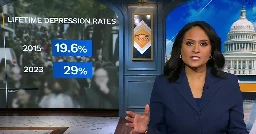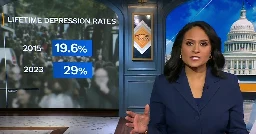More than 50,000 Americans died by suicide in 2023 — more than any year on record
More than 50,000 Americans died by suicide in 2023 — more than any year on record

www.nbcnews.com
More than 50,000 Americans died by suicide in 2023 — more than any year on record


